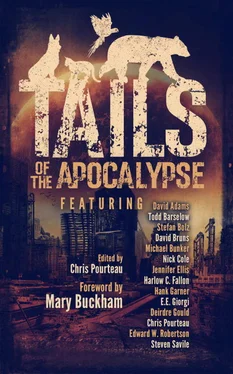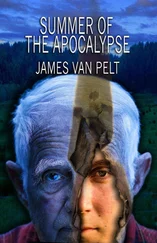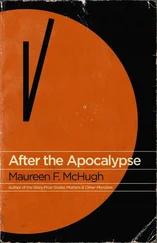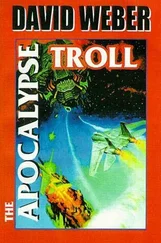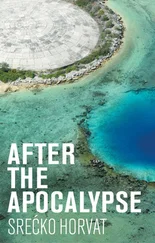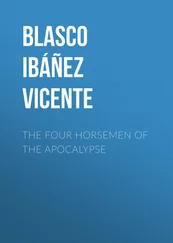He examined Santiago for a few seconds, then sighed as if he’d been hoping for a response from the cat. Then he rose and ran his hands reverently over a glossy armoire he was refinishing. He’d grown thinner over the past few months and spoke of something called cancer that Santiago did not understand.
The cat peered out the front window of the shop and off into the distance, where a slice of the dark cone of Mt. Vesuvius was just visible above some of the buildings. How was he going to get the man’s attention and make him understand that they needed to leave?
He jumped off the desk, the shock of landing traveling from his paw pads all the way up his legs. He meowed and wove in and out of the man’s legs and ran to the door.
The man ignored his crazy antics the first few times and then finally looked down. “I will get you your cream later this afternoon, Santiago, I promise.”
Santiago tried his meow, leg weave, run-to-the-door routine again, this time stopping to claw at the man’s pant leg and pulling the cloth in the direction of the door.
“Santiago, please. I have work to do.” The man’s fuzzy eyebrows were lowered in a way the cat had never seen before, except when a particularly brash American tourist entered the shop and tried to haggle the man down to nothing for one of his treasures.
Santiago tried simply running back and forth between the shopkeeper and the front door. But the man only started to look alarmed at the cat’s behavior, as if Santiago had finally gone senile.
“Very well,” the man said. “Is it your cream that you want? I’ll go get it now.” And the man set off with his limp to retrieve his hat and head out for the market.
Santiago ran to the front door and tried to block it with his small body. He tried growling and arching his back until his fur became bristly. The shopkeeper stepped backwards surprised, and then Santiago mustered up a rusty old purr and wound between the man’s legs to show that he wasn’t really angry. This seemed to startle his patron even more, and the cat was certain the man thought he had gone quite mad.
Santiago ran back to the desk, jumped up first on the chair, then the desktop where he sat atop the radio, hoping the man would understand. But the shopkeeper just shook his head at the cat, removed his hat from a peg and placed it on his head, then turned to leave. The cat jumped down, feeling the sting of shock once again in his bones, and loped across the floor. He darted out the door before it closed. He stayed close to the man on the walk to the marketplace and once again scanned the streets for signs of the other animals. The bad smell had grown stronger, and Santiago resisted the urge to flee to safety. He had to get the man to leave Pompei.
On the way back with the cream from the grocer, Santiago approached the man and delicately sunk his teeth into the man’s pant leg again and pulled him toward the eastern hills, away from Mt. Vesuvius. The man gave him an incredulous look and pushed him aside gently with his foot.
Santiago was beginning to feel desperate. Back inside the antique store, he cast about for something to knock off an armoire or dresser, or for the arm of a fine Chippendale sofa to shred. Anything to get the shopkeeper’s attention, to make him understand. But this would probably just get him thrown out permanently.
While the man poured his cream, Santiago bolted across the store and onto the man’s desk, slamming his paws against the picture of the woman on the wall. The frame fell to the floor, shattering the glass. The cat clawed at the photo until it came loose, then snatched it up in his teeth and shot back out the open front door. The man followed close on his heels, yelling in anger.
And so their game of cat and mouse began, except that for once, Santiago was the mouse. He drew the man out of the piazza, down streets that wound through unfamiliar neighborhoods, and eventually along busy roadways that passed through entirely different villages, always keeping Mt. Vesuvius at his back. As they went, he could on occasion sense other animals moving along with him; they were there in the shifting shadows, with flat-back ears and ridged tails, always going in the same direction as Santiago—away from the dark cinder cone of death.
Santiago was not sure how long he ran. But it was at least a few hours. The man tried to trick him sometimes by stopping the chase and walking away in the other direction, but always, always looking back over his shoulder. Santiago never relented. He pressed on, slowing sometimes to let the man catch his breath. And the man always turned back and continued following him. By the time they reached the green rolling hills at the edge of a village many villages away from their own, the man was pasty faced and flagging, and Santiago’s old bones ached and his heart felt leaden.
They were alone on a tree-studded slope, and Santiago turned and regarded the man. He still held the photo in his mouth, but he could go no further. His energy, fueled by a desperate need to save the shopkeeper, was spent at last. He was sure the man hated him now, would turn him out into the streets. But Santiago could not muster any feelings of anxiety regarding this. He was too exhausted and closer to death, perhaps, than he’d ever been, the strain of the journey too much for his aging heart. He would not be able to make the return trip. He set the picture down on the ground and drew back, his head bent low, preparing for the man’s anger.
The man came forward slowly and collected the picture. Three white strands of his hair had escaped from his wispy comb-over and fell into his eyes. “Why? Why, Santiago?” he pleaded simply, as if the cat could answer. Then he placed the picture in his pocket with his notebook and turned to look down the slope at how far they’d come.
A kaboom shook the earth, and the top of Mt. Vesuvius exploded, throwing a mushroom cloud of smoke and debris into the air to rain down on Pompei and the neighboring communities. Cinders fell around them like burning, black snow, and the heavens turned hazy as buildings went up in flames. The smoke plume above the volcano ascended into the sky where it spread and blotted out the sun.
The man sank to his knees and stared at the flames, the destruction, the utter decimation. Red sprays of lava leapt into the air and showered the already burning villages. Santiago choked on the thick air, his heart beating in dull throbs.
The man started to weep openly. “Oh Santiago, Pompei, Naples, Torre del Greco, Scafati… they are all gone. Did you know this was going to happen? How? Did you bring me here to save me? You brave cat. So brave, Santiago. But I am dying. I have only a few more weeks, maybe months to live. I was content to die. To join my Sofia. And now, I must watch the destruction of my home, of everything I have ever known. Oh, my Santiago, there is no poetry, no dance of words, that could express the agony of this moment.”
The sky grew increasingly dark, and the thin lines of rain marked the sky. Except it wasn’t rain. It was falling ash; burning, incendiary ash. It started to fall all around them, graying the air, searing their skin; burning away Santiago’s fur and the man’s clothes.
They had not run far enough away.
Within seconds, the ash became thick and unyielding, and although Santiago through his pain and failing eye thought he could see the edge of the ash storm farther up in the mountains, there was no way two old men, exhausted and dying, could outrun the blanket of ash that covered all.
2548
“There’s one all the way up here,” Zoey called to Devon. She waved to him from behind a patch of dry brush that covered the desolate hillside. “This one is really well preserved.”
Devon jogged up the hill carrying all of their scanning equipment. As he studied the figure, he said, “Hmm. A man and his cat. Nice find, Zo. I’ll have the guys come and get it. This one must have been on the edge of that rainstorm that came up just after Vesuvius exploded. The details are nice and crisp.” He tapped the stone lightly with his small mallet. “Sounds hollow. We might be able to get some good information from this one and cast it.”
Читать дальше
